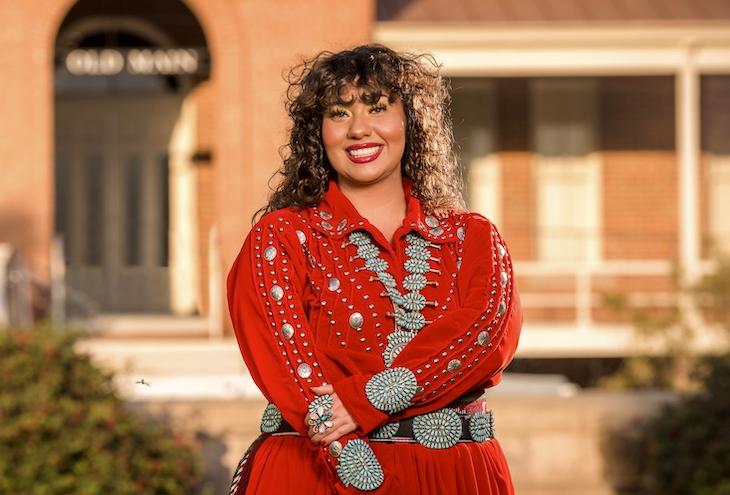Growing up in Tucson, Ariz., surrounded by the Sonoran Desert, Nadira Mitchell was always interested in the natural world. As a child, she remembers collecting snails after the monsoon rains and taking notes on her observations. “My mother would always remind me to thank them for their knowledge,” says Mitchell. “She instilled within me a love and respect for all animals and other living beings, rooted in our Navajo culture.”
From her mother Mitchell learned that harming insects is unhealthy, an outlook that shaped her worldview. But it was not until she began volunteering at the Arizona-Sonora Desert Museum while in middle and high school that she realized her interest in nature could turn into a career. “I loved educating museum guests about the desert wildlife and connecting them with the natural world,” she says. “Following this passion ultimately led me to study at the University of Arizona, earning my BS in natural resources with a wildlife conservation and management emphasis (with honors) and minor in American Indian studies.”
Mitchell received an AISES A.T. Anderson Scholarship, forming part of the funding that allowed her to pursue her degree over five years and affording time to acquire more experiences and qualifications. “In addition to gaining confidence through my studies, I was able to see the real-world application of my degree by participating in projects such as a solar panel installation on Navajo Nation,” she explains.
While her college career offered many fulfilling experiences, it also included unexpected challenges. She says that the transition from high school to college can be complicated by small things no one tells you about, such as expectations that you understand classroom online technology and have a solid grasp of time management. She points out that prerequisite courses can be particularly daunting. “My advice is to form good relationships with your professors and show them you are committed to succeeding.” she says. “My passion for the environment drove me to survive the toughest moments in college and not turn to something easier. Keeping my focus on my career path is what kept me committed.”
Another challenge Mitchell faced as a Native student was the disconnect between Indigenous and academic perspectives. “It’s important to get involved in Native student groups to build a network of support. These relationships can encourage you and help you grow throughout college and into your future career,” advises Mitchell. “AISES showed me how many Native people are in STEM, and that I am not alone. It is inspiring to connect with so many successful STEM students and professionals.”
At U of A, Mitchell was involved in Native American Student Affairs and was honored to be awarded their Outstanding Graduating Senior Award, in addition to receiving the Outstanding Graduating Senior Award from the College of Agriculture, Life, and Environmental Sciences. “I am proud to be a Native person in STEM,” she says. “We need more of us to go into STEM careers so that we can use the knowledge we gain to give back to and support our communities.”
Mitchell is currently working in the Native American Research Assistantship Program run by the U.S. Forest Service and Wildlife Society, where she is assisting in drafting a comprehensive tribal wildlife management plan in partnership with the Mescalero Apache Tribe. “As I look to my future career, I would love to work in partnership with tribal nations as a natural resources manager or wildlife conservationist,” she says. “It’s critically important for Native STEM professionals to work alongside tribal nations so that we can best serve our communities on vital issues, from maintaining tribal sovereignty to fighting climate change.”













